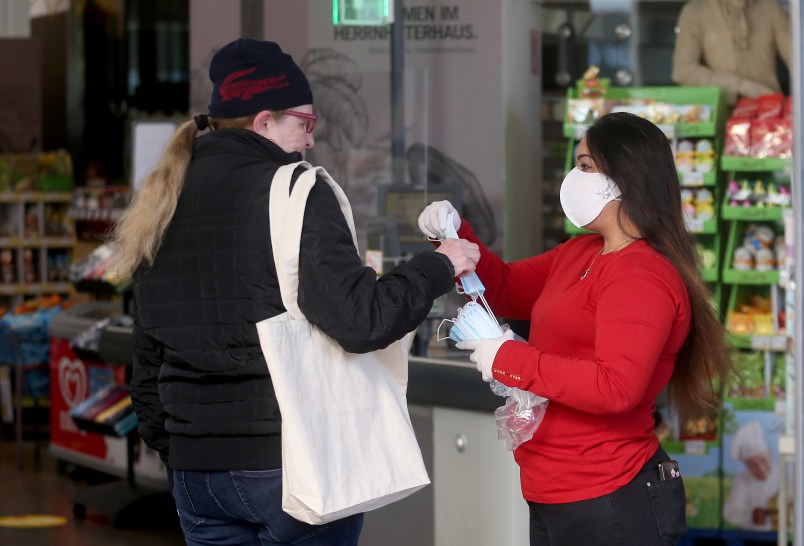BERLIN (AP) — Austria and the Czech Republic said Monday they plan to relax some restrictions imposed because of the coronavirus starting after Easter, getting ahead of their European counterparts as they announced proposals that would begin a slow return to normal life.
The Austrian government said it aims to allow shops shuttered because of the pandemic to reopen in phases beginning in just over a week. But Chancellor Sebastian Kurz cautioned that authorities could activate the “emergency brake” if infections accelerate once more.
Kurz said the upcoming days “will be decisive in whether the resurrection after Easter that we all want can take place.” He said the government also is extending its three-week-old restrictions on public movement until the end of April.
Speaking in Vienna, Kurz said the government’s plan is to reopen small shops of less than 400 square meters (4,305 square feet) on April 14 along with DIY stores and garden centers. The number of people permitted inside will be limited, and all will have to wear face masks, as they already must do at Austria’s supermarkets, he said. People also will have to start wearing masks on public transport.
Authorities hope to let the rest of the retail stores open on May 1, including shopping malls and hair salons. The government doesn’t plan to reopen restaurants and hotels until at least mid-May, and the decision will be made at the end of April.
After small shops are reopened next week, “we will watch things closely,” Kurz said. “If the (infection) figures continue to develop in the right direction, then the next step will take place on May 1. If we are not successful, then we must pull the emergency brake.”
Much of Europe was effectively shut down after clusters of COVID-19 cases first emerged in Italy in late February and other parts of the continent emerged as hot spots in the worldwide pandemic. Most governments still are talking publicly about the current health crisis instead of exit strategies for the near-standstill of public life.
In the Czech Republic, the head of the government’s crisis committee, Interior Minister Jan Hamacek, said he is proposing to scrap a ban on Czechs traveling abroad starting April 14. He said border checks that were introduced to contain the virus would remain in place and people would be allowed to travel only under rules that have yet to be finalized.
Currently, Czechs are barred from leaving the country and foreigners from entering it.
Czech Health Minister Adam Vojtech said the government also will discuss a proposal to allow more small stores to reopen, depending on the development of the epidemic. The Cabinet will decide on the measures later this week.
Like Austria, the country doesn’t plan to let up for Easter itself. Hamacek said restrictions on movement within the Czech Republic won’t be relaxed for Easter.
Austria reported some 12,000 confirmed cases of the coronavirus, including 220 deaths, as of Monday, according to government figures. The neighboring Czech Republic had 4,591 cases and 72 deaths.
For most people, the virus causes mild to moderate symptoms such as fever and cough. But for some, especially older adults and those with existing health problems, it can cause pneumonia and lead to death.
___
Karel Janicek in Prague contributed to this report.







Apparently, they got the all-clear from Dr. Navarro and his “science”…
Finally something positive!
And note that the measure STILL IN PLACE are substantial.
Austria has been testing, so the lower number of cases is indicative of a shift.
Sweden continues with its controversial loose strategy compared to its Nordic neighbors.
"For most people, the virus causes mild to moderate symptoms such as fever and cough. But for some, especially older adults and those with existing health problems, it can cause pneumonia and lead to death." This statement reinforces what is proving less and less to be the case: across all populations, a sizable number of young, healthy adults (20 to 45 years old) are also succumbing to the fatality of this disease.